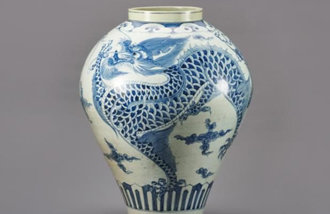Oil Price Runs Through Roof
The credit threats from Americas fifth largest investment bank Bear Stearns caused turmoil in the global financial community, pulling down the New York stock markets and further weakening the dollar.
Now, market watchers in Korea are focusing on how the U.S. markets would affect the foreign exchange and stock markets in Seoul on Monday. The value of the Korean won against the greenback is about to hit the 1,000 won mark.
The price of Dubai crude oil, which accounts for 80 percent of Koreas total oil imports, reached the record high of $100 per barrel.
The U.S. Federal Reserve Board announced on Friday that it would bail out Bear Stearns which has been hit hard by the snowballing losses from the defaults and delinquencies by the subprime mortgage borrowers and the ensuing shortage of liquidity. The rescue plan, however, is funneling the public fear of an imminent credit crunch.
Founded in 1923, the company stands fifth in size in the United States, dealing mostly in stock brokerage and investment. As of late, it has been bleeding heavily due to the recession in the real estate market.
U.S. President George W. Bush is set to hold an emergency meeting on Monday with FRB Chairman Ben Bernanke and Treasury Secretary Henry Paulson to fend off the spread of the fear fueled by the Bear crisis. The Fed is expected to further cut the interest rates by 0.75 to 1 percentage point.
Shocked by the Bear news, the Dow Jones Industrial Average closed Friday 194.65 points (or 1.6 percent) lower at 11,951.09.
The Bear bailout also pushed the value of the American currency deeper down.
The foreign exchange market in New York watched the euro rise to $1.57 against the dollar on Friday. The U.S. currency also showed weakness against the Japanese yen, falling to 98.88 yen per dollar for the first time in 12 years. Its value remained below the 100 yen per dollar level for two consecutive days.
Dubai oil was traded at $100.18 per barrel on Friday. The Korea National Oil Corporation analyzed that the price hike was triggered by speculative funds switching investment targets from the dollar to oil markets.
Affected by the higher tags on oil and grains, domestic consumer prices are continuing its steep climb.
According to the Bank of Korea, the prices of imported goods rose 22.2 percent in February compared to the same period last year, showing the highest increase in nine years and four months since the 25.6 percent hike in 1998.
kong@donga.com higgledy@donga.com







